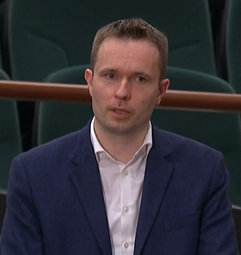The Government must urgently respond to near record-breaking levels of homelessness, according to the Social Democrats Housing Spokesperson and Dublin Bay North TD Cian O’Callaghan.
“Homelessness is near an all-time high,” he said.
“This is a disaster for everyone living in emergency accommodation who does not have a place they can call home.
“Figures released by the Department of Housing today show that there are now 10,492 people trapped in emergency accommodation, including 3,071 children.
“Homelessness has increased by over 31% in the past year – while child homelessness is up by 41% during the same period. These figures are a shocking indictment of the Government’s failed housing policy.
“These figures do not include people sleeping rough on our streets, in tents and on couches.
“There is a complete lack of urgency by the Government in their approach to housing. There are five things that the Government should do immediately to reverse this latest increase.
“They should;
- End no-fault evictions.
“Tenants who pay their rent and adhere to their lease agreement should not be subject to eviction.
- Urgently introduce a tax on vacant homes.
“There are more than 87,000 vacant homes around the country – a tax to help bring some of these back into use would help increase supply.
- Extend the rent pressure zones nationwide.
“Renters outside of Rent Pressure Zones are at risk of homelessness when they face rent increases as high as 70%.
- Revise the Housing Assistance Payment levels upwards.
“It is virtually impossible in major urban areas to find anywhere to rent for people in receipt of HAP.
- Proactively regulate short-term lets.
“There were more than 35,000 empty rental homes on the night of the census. Many of these operate as short-term lets without planning permission or planning exemption.
“Bringing even a fraction of these back into use as rental homes would make a significant impact.
“The Government must act with a real sense of urgency if the number of people living without a home in emergency accommodation is going to be decreased.”
